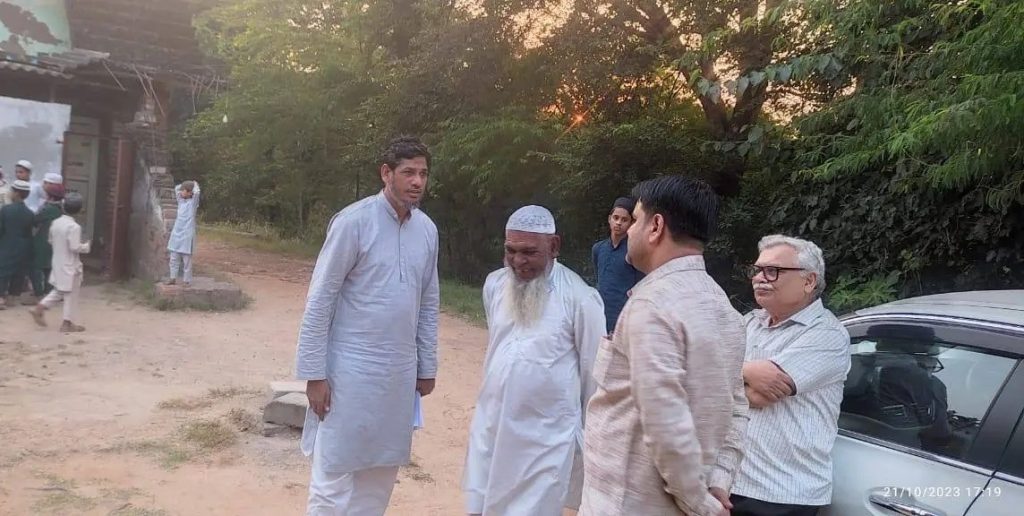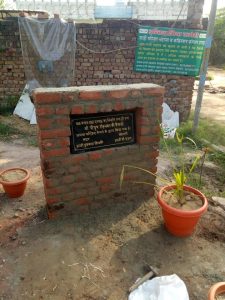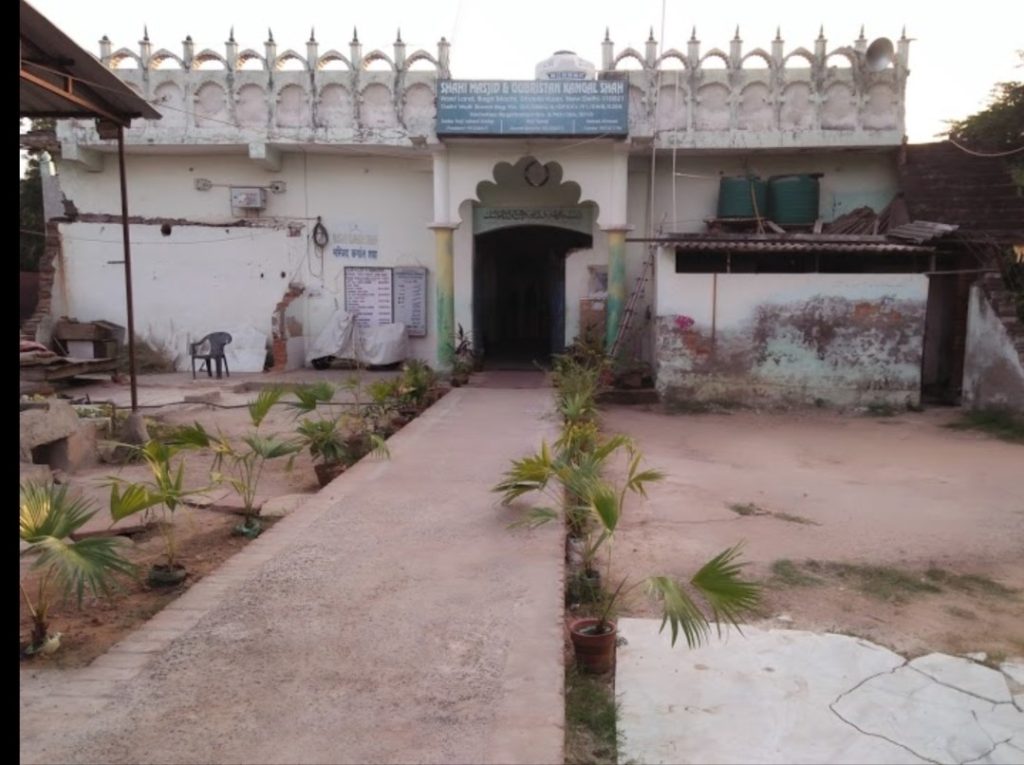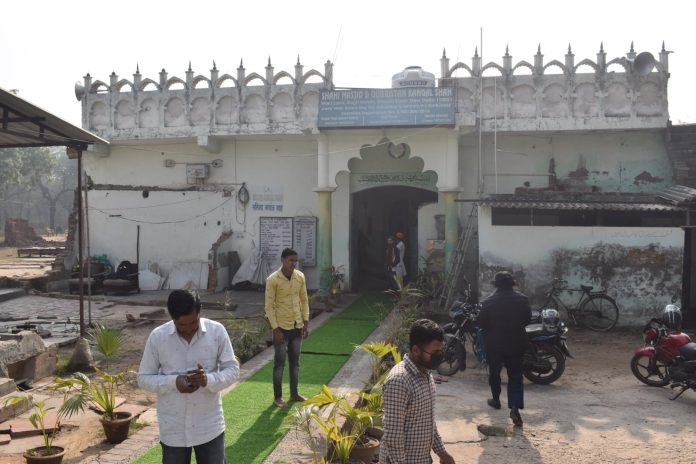
By Anwarulhaq Baig
Radiance News Service
New Delhi, Nov. 5, 2023:
In a major relief, the Delhi High Court in an interim order has directed authorities not to take any action against the over 100-year-old c until January 31, the next hearing date.
Expressing concerns about the potential demolition of the Shahi Masjid Kangal Shah, Madrasa, and Qabristan near Kitchener Lake at Bagh Mochi, Dhaula Kuan, the managing committee, in its petition, has informed the court that the structures have been in historical use for offering prayers for Muslims and for burials, etc.
While issuing the notice, Justice Prateek Jalan asked the Delhi government’s Religious Committee (Home), the Union Government, Delhi Development Authority, the Sub-Divisional Magistrate of the Delhi Cantonment area, and the Delhi Waqf Board to provide their responses on the matter within a four-week time. The next hearing is scheduled for January 31, 2024.

Talking with Radiance, the assistant secretary of Jamaat-e-Islami Hind, Inam-ur-Rehman, who actively worked with the mosque committee, said that former bureaucrat Haseeb Ahmed, Advocate Rais Ahmed Siddiqui, Advocate Aslam and the entire Waqf Board team also provided full cooperation for filing the petition.
Senior Supreme Court lawyer, Advocate Fuzail Ahmad Ayyubi, arguing in the High Court on behalf of the managing committee, stated that during the Religious Committee’s deliberations, there was consideration of demolishing the waqf properties, specifically the Shahi Masjid, Madarsa, and Qabristan Kangal Shah, which have been managed by the petitioner committee as waqf property for over a century.
Justice Jalan asked if any action was planned soon. Counsel Arun Panwar, representing the religious committee and the SDM, replied that since there was originally only a mosque on the property, the DDA, as the landowner, must take action.
Advocate Ayyubi maintained that the religious committee had no authority over the property because it was privately owned.
 Advocate Ayyubi further argued that the government authorities had been asserting their claim by referring to the internal transfer of land, presenting it as government property. “However, they have consistently acknowledged the presence of a mosque on privately owned land and have never raised any claims or objections regarding the burial ground as the mosque and religious school coexist on this land, making it a unified piece of property,” he added.
Advocate Ayyubi further argued that the government authorities had been asserting their claim by referring to the internal transfer of land, presenting it as government property. “However, they have consistently acknowledged the presence of a mosque on privately owned land and have never raised any claims or objections regarding the burial ground as the mosque and religious school coexist on this land, making it a unified piece of property,” he added.
Advocate Ayyubi expressed deep concern over authorities’ arbitrary actions of incorrectly labeling the mosque, graveyard, and madrasa as unauthorized, even though they were previously recognized as private property and were not demolished during previous demolitions of unauthorized structures in the vicinity. He also pointed out that the authorities had not even given the petitioner an opportunity for a fair hearing.
 The court noted that the 1976 gazette notification listed the graveyard as Waqf property, following Advocate Ayyubi’s submission.
The court noted that the 1976 gazette notification listed the graveyard as Waqf property, following Advocate Ayyubi’s submission.
Advocate Ayyubi also submitted the communication records between the Waqf Board and DDA from 1978 onwards related to the mosque. On which, Justice Jalan agreed that “the prima facie showed that the mosque was treated as Waqf property by DDA also.”
Then Justice Jalan concludes, “In the meanwhile, having regard to the above documents, and to the fact that the structures are admittedly over one hundred years old, the respondents are directed not to take any coercive action against the subject property until the next date of hearing.”
The mosque committee’s apprehension has mounted following the October 20 meeting of the Religious Committee, which was formed by the Delhi government in 2014 to ensure that encroachments are removed without any law and order incidents. In the meeting, the religious committee, the over 100 years old religious property was referred to as an unauthorized religious structure.
It is pertinent to note here that the religious committee, before demolishing any religious structure in Delhi, gives sanction to DDA, MCD, NDMC, PWD and other entities. Recently, many anti-encroachment drives were carried out by civic authorities, in which several religious structures including mosques and shrines were demolished.
On August 7, hearing a PIL, which claimed that several mosques, Mazars (shrines), and dargahs were illegally built on public land, parks, and other prominent public places in violation of the Supreme Court’s directions, the Delhi High Court asked the Union and Delhi governments to respond to it. The PIL wanted the removal of all unauthorized religious structures from public spaces in Delhi.




